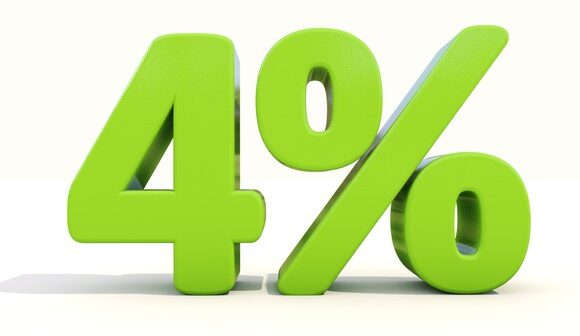Statement by the Government of Grenada Deferral of 4% Salary Increase for Public Officers for 2021.
January 12, 2021 St. George’s: January 12, 2021: COVID-19 has, without question, significantly disrupted life as we know it and Government has had to bear the brunt of the impact. In the blink of an eye, Government had to take immediate, emergency policy action to provide support to households and businesses, which involved significant unplanned expenditure.
During the period September 8, 2020 to December 31, 2020, a team representing Government invited Trade Unions and Staff Associations to discuss the impact of the COVID-19 pandemic on the Public Service.
Government’s position was clear – there is an urgent need to adjust to the socio-economic consequences of the pandemic and, protect all workers whilst doing so.
As part of the engagement, Government provided detailed information on the fiscal status.
It is well known that travel restrictions severely impacted tourism, Grenada’s largest economic sector.
Consequently many hotels and other tourism-related businesses were forced to respond to the crisis by laying-off, rotating or reducing the salary of workers.
Additionally, St. George’s University, the island’s largest contributor to the Gross Domestic Product shifted its teaching mode from face-to-face to online classes, resulting in the majority of international students returning to their homeland.
Government has publicly stated that revenue collection was down by 50% by the end of June 2020.
The Unions and Staff Associations were presented with the hard data including the conservative revenue projections for the last quarter in the face of continuing uncertainty.
So, what was Government’s objective? Simply put, Government was seeking consideration to forego the payment of the 4% salary increase due for 2021, which amounts to $13.2 million.
Unable to secure a consensus after the first round of talks,
Government subsequently requested a deferral of payment.
Government acknowledges that the increases were agreed upon in good faith but is asking that consideration be given to deferring any significant increase in recurrent expenditure, at a time when the economic climate remains very uncertain. It must be noted that despite the ongoing challenges, Government has protected its workforce from the loss of jobs and wage cuts,
while at the same time, providing bailouts for others.
Wages and salaries for all public officers have been paid in full and on time every single month without fail, spending on social care programmes has been maintained; all whilst meeting its debt obligations and the necessary COVID-19 related expenditure.
So, why is Government unable to pay the 4%? The fact of the matter is that Government must actually have $13.2 million to fund the increase in recurrent personnel expenditure.
The 4% salary increase is a permanent addition to Government’s wage bill, unlike the repurchase of the WRB shares in GRENLEC, which was a one-off expenditure on a revenue generating capital asset. To equate the two is ill-informed and willfully misleading. Further, the funds used for the GRENLEC repurchase came from grants and soft loans which were intended for capital development and any deviation can jeopardise Grenada’s future eligibility for such funding.
Let’s examine the reality: A public officer who earns $3,000 monthly will receive an increase of $120, which is recurrent expenditure and not a one-off payment. Therefore, multiply that by 12 months and remember to add the increments, then consider what that means for Government.
Further, it is important to note that there are thousands of workers on Government’s payroll.
These are the facts which the unions themselves can verify.
That said, Government is by no means attempting to shirk its legal obligation. In fact, it is not in Government’s interest to defer the 4%. A deferral means the return of retroactive salary payments and 8% compounded payable in January 2022.
Should Government agree to the terms of the Unions’ requests, it will deviate from exercising prudent fiscal management.
There is certainly no desire to return to the pre-structural adjustment days when Government had to borrow to fund recurrent personnel expenditure.
Government has made clear its intention to share quarterly financial statements with the unions to ensure full transparency in the process.
In the final analysis, Government, in its discretion, deems it a reasonable ask to defer salary increases for 2021 given the uncertainty of the current situation.
It is difficult to justify using scarce financial resources to fund a permanent increase in recurrent expenditure for workers whose jobs are secure and whose wages/ salaries and allowances are paid on time, in full, every month; particularly where the imperative exists for economic recovery to the benefit of all citizens.
Is it that Government is being pushed to a situation where it will have to look at cutting expenditure and reducing the size of the
workforce as part of this effort?
Government recognises and appreciates the contribution of all Public Officers and in particular, commends workers in the health care sector and disciplined forces, for their diligent work, especially during this pandemic.
Government also accepts that it should pay the increase; however, it reiterates that it is not able to afford payment in 2021 and cannot project when it can pay same, based on the ongoing economic uncertainty.
Government reassures of its commitment to secure the jobs of all of its employees.
Government has a responsibility to make the payment and it also has a responsibility to manage its financial resources, in the best interest of the nation.
Government therefore kindly requests the understanding and acceptance of bargaining agents to defer the payment of the 4% salary/wage increase for the year 2021.
See link for more: https://www.gov.gd/statement-government-deferral-4-salary…
Leave a comment below...
